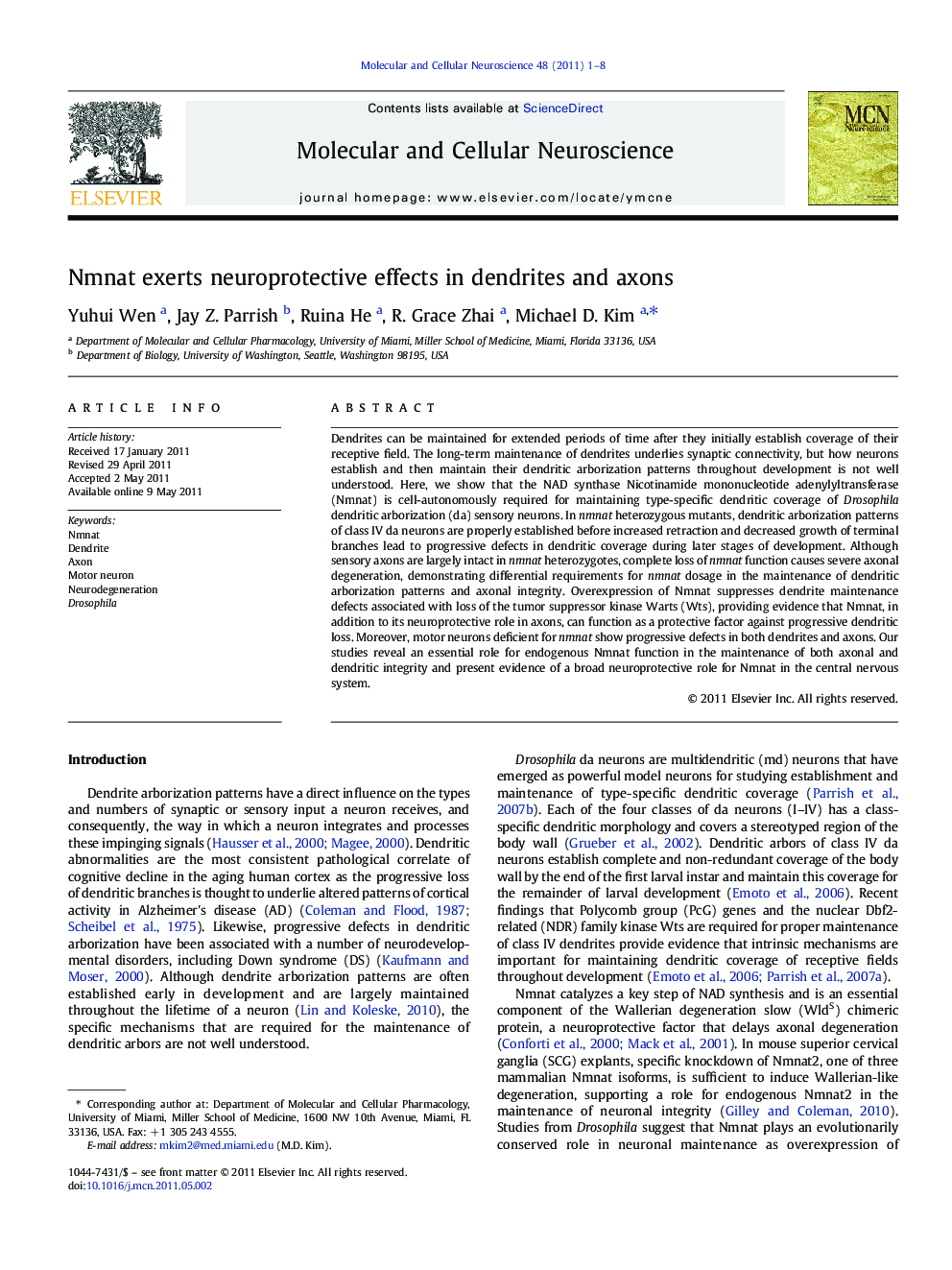| Article ID | Journal | Published Year | Pages | File Type |
|---|---|---|---|---|
| 10956654 | Molecular and Cellular Neuroscience | 2011 | 8 Pages |
Abstract
Dendrites can be maintained for extended periods of time after they initially establish coverage of their receptive field. The long-term maintenance of dendrites underlies synaptic connectivity, but how neurons establish and then maintain their dendritic arborization patterns throughout development is not well understood. Here, we show that the NAD synthase Nicotinamide mononucleotide adenylyltransferase (Nmnat) is cell-autonomously required for maintaining type-specific dendritic coverage of Drosophila dendritic arborization (da) sensory neurons. In nmnat heterozygous mutants, dendritic arborization patterns of class IV da neurons are properly established before increased retraction and decreased growth of terminal branches lead to progressive defects in dendritic coverage during later stages of development. Although sensory axons are largely intact in nmnat heterozygotes, complete loss of nmnat function causes severe axonal degeneration, demonstrating differential requirements for nmnat dosage in the maintenance of dendritic arborization patterns and axonal integrity. Overexpression of Nmnat suppresses dendrite maintenance defects associated with loss of the tumor suppressor kinase Warts (Wts), providing evidence that Nmnat, in addition to its neuroprotective role in axons, can function as a protective factor against progressive dendritic loss. Moreover, motor neurons deficient for nmnat show progressive defects in both dendrites and axons. Our studies reveal an essential role for endogenous Nmnat function in the maintenance of both axonal and dendritic integrity and present evidence of a broad neuroprotective role for Nmnat in the central nervous system.
Related Topics
Life Sciences
Biochemistry, Genetics and Molecular Biology
Cell Biology
Authors
Yuhui Wen, Jay Z. Parrish, Ruina He, R. Grace Zhai, Michael D. Kim,
